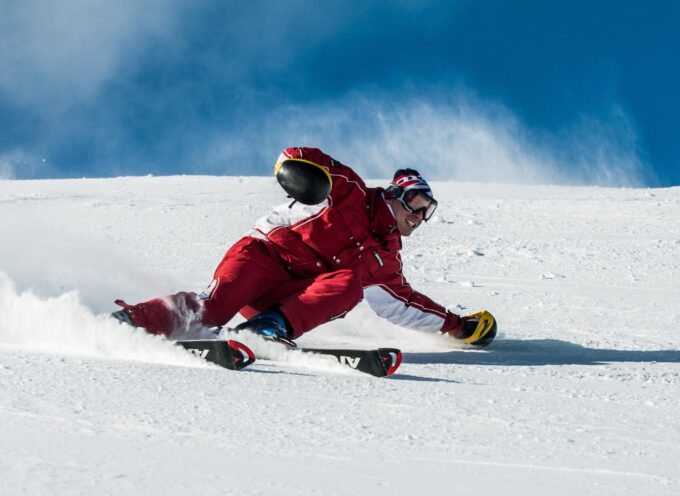ANGIELSKI
No-code developer to rozwijająca się gałąź branży IT, która cieszy się ogromnym powodzeniem wśród tych pracodawców, którzy stawiają niskokosztowe, elastyczne i szybkie wytwarzanie oprogramowania. Jakie narzędzia typu no-code są w 2024 najlepsze? No code deweloper – kto to? W telegraficznym skrócie – no-code developer to specjalista, który specjalizuje się w tworzeniu rozwiązań IT, takich jak aplikacje mobilne, aplikacje webowe, narzędzia automatyzujące procesy biznesowe lub inne programy użyteczne dla konkretnej specyfiki
It`s really important to know what to avoid! The most common mistakes WRITING Writing part has not been carefully planned by the student I to niestety widać. Musisz sobie uświadomić, że forma pisemna na maturze to nie list do ukochanego/ukochanej ani e-mail w sprawie obiadów w szkolnej stołówce. Tu musisz dokładnie rozplanować co chcesz zawrzeć w swojej wypowiedzi, w jakiej kolejności, za pomocą jakich czasów i słów. Nie muszę chyba
Whom will you be in the future? Patrick, Birmingham Now I’m 16 and I’m going to learn for two years more so I’ll have finished education by the age of 18. Some of my friends are going to study at university, but I know I must start working immediately. We are not very rich, you know. I like working with computers and I’m sure one day the machines will replace
Ankieta, inaczej zwana kwestionariuszem, to zestaw pytań do wypełnienia przez określoną osobę na zadany temat. Na maturze możesz spotkać się z zadaniem wymagającym ułożenia krótkiej ankiety lub udzielenia odpowiedzi na pytania zawarte w kwestionariuszu. Jak dobrze odpowiedzieć na ankietę podczas matury? Odpowiadaj krótko, ale treściwie i na temat. Pamiętaj o przestrzeganiu zasad poprawności gramatycznej (jeśli pytanie zamknięte zaczyna się od Have you ever… odpowiedź Yes niestety – nie wystarczy. Powinno
Temat: życie rodzinne i towarzyskie List nieformalny to jedna z najczęściej występujących dłuższych form maturalnych. Ze względu na to, że jest to list pisany do kogoś bliskiego (rodziny, przyjaciół, znajomych) – używamy w nim języka potocznego, dopuszczalne są skróty (contractions) i pominięcia nieutrudniające zrozumienia treści (np. zaimka względnego w zdaniu złożonym). Taki list, choć w znacznej części piszemy go tak jak mówimy (a więc poprawnie – ale bez sztuczności, napuszenia,
Temat: dom Truths and myths about sharing a room with your sister Veni, vidi, vici. Your special reporter has just spied out the bedroom shared by two sisters and thanks to this act of his great bravery some of the myths referring to this subject might be busted: 1) Living with your sister will be a great fun. Well, if you find endless telephone converstations, piles of dirty clothes everywhere
Wykorzystując wyrazy podane wielkimi literami, uzupełnij każde z niedokończonych zdań tak, aby zachowane zostało znaczenie wypowiedzi wyjściowej. Nie zmieniaj podanych fragmentów zdań ani form wyrazów do wykorzystania. 1. My sister accused me of taking her doll. Took “You ………………………………………………… you?” said my sister. 2. That’s the longest film I have ever seen! It lasted four hours! Long I have ………………………………………………… film before! 3. A nice taxi driver drove us into
Rozprawka Rozprawka, lub też tak zwane wypracowanie argumentacyjne, charakteryzuje się tym, że zawsze, jak na dwóch szalach wagi, podaje się argumenty za i przeciw. Temat rozprawki to najczęściej wady i zalety jakiejś rzeczy. Taki temat może być sformułowany następująco: ��Advantages or disadvantages of living in the city. ��Mobiles should be forbidd in schools – do you agree? Wszystkie tego typu tematy zawsze wymagają argumentów za i przeciw. Nie piszemy więc, że na
Czego potrzeba, aby napisać dobrą recenzję? Słówek, słówek i słówek!!! Recenzja nie jest utworem bardzo skomplikowanym. Składa się z trzech głównych części. W części pierwszej podajemy główne informacje o utworze, które możemy poprzedzić wprowadzeniem. Tu z kolei możemy podać, gdzie ten film widzieliśmy (np. był wyświetlany na takim a takim festiwalu filmowym). Informacje, których nie może zabraknąć w recenzji to tytuł i autor (książka) czy reżyser i główni aktorzy (film,
Teenagers about holiday Marta: People usually choose some exotic destinations, but I’ve always dreamt about a very special holiday here, in Poland. I love the seaside and my dream is to walk on the beach – starting in the West and finishing in the East. I would start from the island of Wolin, and then go East. I think I would stay a few days in Łeba on the way East because it is my fauvourite
Do you like moving? Read each sentence and tick: ALWAYS, OFTEN, SELDOM or NEVER (depends which is the best answer for you). 1. I love running. I run to school. q ALWAYS q OFTEN q SELDOM q NEVER 2. I choose walk instead of bus. q ALWAYS q OFTEN q SELDOM q NEVER 3. I watch out on my diet. q ALWAYS q OFTEN q SELDOM q NEVER 4. Every weather is good for a walk. q ALWAYS q OFTEN q SELDOM q NEVER 5. I visit sport club sometimes. q ALWAYS q OFTEN
1. �My boyfriend (girlfriend) respects all my believes and my point of view even if he (she) doesn’t agree with them. A. always B. rather yes C. rather no D. never 2. �My boyfriend (girlfriend) shows me that he (she) trusts me. A. always B. rather yes C. rather no D. never 3. �Even if we argue sometimes, we forgive each other very quickly. A. always B. rather yes C. rather no D. never 4. �My boyfriend (girlfriend) understands that I like my
Falling in love is easier on a holiday. First of all, you have more time and you don’t think about exams and tests. Secondly, the sun makes your blood run faster. When you spend time at the seaside or near a lake, there are many opportunities to meet people of the other sex. Camps enable you to make friends. It happens that you meet somebody, fall in love, but then, when you
You want to make a party because you want to celebrate your birthday. Answer the questions below and find out what is the best birthday celebration for you. Birthday! It’s one of the most desirable days of the year. Everybody treats you as if you were a king or queen. You get presents and you are all so happy! And this year. Do you have any idea how to celebrate your birthday?
Our world is divided into two parts. There are two worlds actually! Do you know what I mean? Women and men, girls and boys – although we learn and live in the same society, we will never understand some behaviours of the opposite sex! Boys and girls are interested in different things, very often they can see the world in a different way. That is one of the main reasons of fights
Holidays are gone but we still can remind ourselves what fun they were. There are hundreds of funny stories that will cheer us up! Here are just five of them. Many funny things happen during the holidays especially when you are with your friends. Last holidays I went to a summer camp at the seaside. Two of my friends went with me and we shared a room (dzielić pokój). One day I found an
Zwróć uwagę, że kiedy mówimy o czasach w języku angielskim, okazuje się, że znacznie łatwiej jest wymienić czasy przeszłe i teraźniejsze niż czasy przyszłe. Dlatego mówi się raczej o sposobach wyrażania przyszłości niż o czasach przyszłych jako takich. Spójrz na poniższy dialog – wyróżnione zostały cztery główne sposoby wyrażania przyszłości: – �Hi, Joanna. – �Hi, Susan. What are you doing on Saturday? Will you come over? – �Well, I don’t know… Perhaps it is strange but
THE SECOND / THE OTHER(S) / ANOTHER / OTHER Spójrz na poniższe zdania – to często występujące błędy: 1) First close one eye and then the second eye. 2) Are there another planes to Paris? 3) It’s the best restaurant, but there are many other. THE OTHER(S) W wypadku, gdy są dwie rzeczy tylko, nie używamy liczebnika second – możemy go użyć wtedy, gdy mamy do czynienia z jakąś
In our country the winter weather vary a lot. But it’s good to have some sport even if there’s cold and snowy outside! Skiing Nowadays a lot of people do it. If you live in the mountains in Poland you won’t have problems. But if you live in central or north Poland, you’d better look for some hills first of all and than wait for snow. And hope there will be a lot
Czy jesteś nieśmiały/a? Answer the questions below by choosing A, B, C or D and read your characteristic. (Odpowiedz na poniższe pytania, wybierając A, B, C lub D i przeczytaj swoją charakterystykę.) 1. Think of your first day at new school or a class. What did you do? (Pomyśl o swoim pierwszym dniu w nowej szkole lub klasie. Co robiłeś?) A. I set down and watched my new classmates. (Siedziałem












